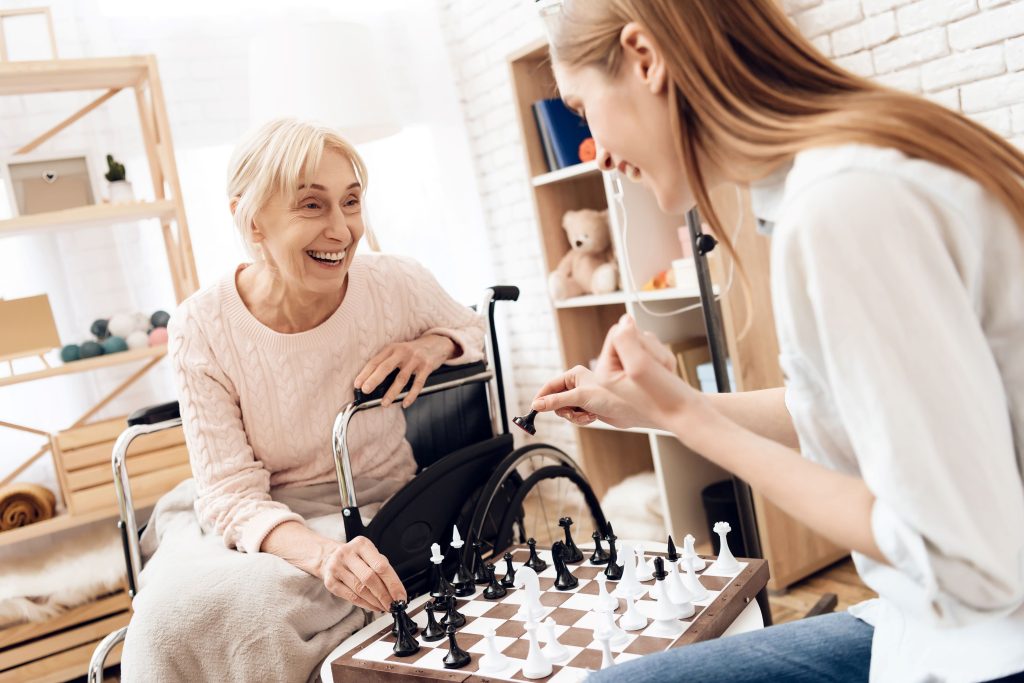

Do you have an elderly loved one who has chosen to remain at home or has undergone medical treatment or surgery? If so, then they may benefit from non-medical home care services. These kinds of services are best defined as live-in or visiting care or assistance provided by professionals without formal medical training or skilled nursing.
There are many different levels of care and support provided to older adults based on an individual’s needs and preferences. Personal Home Health Care and Companionship Care are the two basic options for providing non-medical services to those in need.
In this article, we will discuss both service options and how they differ from one another.
What is Personal Care?
Personal care services, sometimes known as custodial care, are services that aim to help seniors with their basic day-to-day activities. The main focus is to assist older adults with tasks involving personal hygiene, toileting, assistance with dressing, food intake, and on-time medications. Along with this, a personal care service provider will also take care of cooking, laundry, dishes, and maintenance of the house. These services can be provided by the caregiver for a few hours a day or around the clock as per the need.
Examples of Personal Care for Seniors:
- Grooming (hair care, shaving, oral care)
- Bathing and washing
- Toileting and incontinence care
- Skincare and makeup
- Nutrition and meal preparation
- Transportation and mobility assistance
- Fall prevention
- Mediation reminders
- Laundry
- Light housework
Sometimes, a senior home caregiver who has undergone medical training can also provide the following services as a part of the personal care plan such as:
- Pain management
- Stitches and wound dressing
- Checking Vitals
- Physical therapy
- Short-term nursing care

When Do Seniors Need Personal Care?
Firstly, let us note that personal care is not only limited to seniors. It can be for middle-aged individuals or young people who have serious health issues or have met with an accident. However, the majority of people who need personal care assistance are seniors, especially seniors who have serious health conditions such as diabetes, osteoarthritis, heart disease, and cancer or those who have experienced an accident at home. Apart from this, there are some general signs that you could look out for to understand if your elderly loved one needs personal care assistance or not:
- Stopped bathing
- Clumsy behavior
- Stopped brushing their teeth
- Wearing the same outfit every day
- Forgetting to take medicines
- Poor diet and always falling sick or hurting themselves
If your loved one is struggling to look after their personal hygiene and health, it could be the right time to search for a family caregiver service who can look after your older adult’s health and personal hygiene and help build good habits.
What is Companionship Care?
Companion care is intended to offer companionship or fellowship services to older adults and help them engage in social, physical, and mental activities. It also means monitoring their safety inside and outside the home as well. With companionship care, caregivers can also assist the client with activities of daily living and spend most of their time with them to keep them accompanied, occupied, and happy. The purpose of senior companionship care is to provide emotional support, build confidence, and improve your loved one’s quality of life.
What Does a Caregiver Provide Under Senior Companion Care Services?
- Offering conversation and friendship
- Counselling
- Assisting clients in family gatherings and public services
- Playing games and offering recreational activities
- Running errands and light housekeeping
- Encouraging exercise and accompanying them on long walks
- Driving the client to the hospital, daily doctor’s visits, etc.
- Providing a sense of security and comfort
When Do Seniors Need Companionship Care?
In certain situations, your senior loved one needs to have a companion live with them or come visit them daily, such as when they have Alzheimer’s, dementia, depression, heart attack, stroke, anxiety, perceived stress, and loneliness, as they cannot be safely left alone. If your loved one has unexplained injuries or chronic inflammation and needs sudden medical emergencies and doctor’s visits, you should consider having a companion living with them. A live-in companion has similar responsibilities just like a visiting professional, the only difference will be that he or she will be able to take care of your elderly loved ones at night when going to the bathroom or re-directing them when they get confused or wander in between their tasks.
Choosing Between Companion Care and Personal Care
Sometimes it gets tough to choose between companion care and personal care. Ultimately everything comes down to your loved one’s needs and the complexity of the situation. Personal care is more hands-on and is required if your loved one has a disability and needs more bodily assistance. Companionship care on the other hand emphasizes more on emotional support and cognitive development.

Assisting Hands: Your Senior Home Care Services in Las Vegas, NV
At Assisting Hands, our core mission is to provide care and help seniors live with dignity and enjoy their independence in the comfort of their own homes. We are a top-notch home care service provider that can help your senior loved ones live an active and enriching lifestyle.
Whether your loved ones require personal care, companionship care, or a blend of both, we at Assisting Hands are here to provide that support. Ready to get started?
Get in touch with us by calling (725) 696-9942 to learn more about the senior companionship care services we offer.
